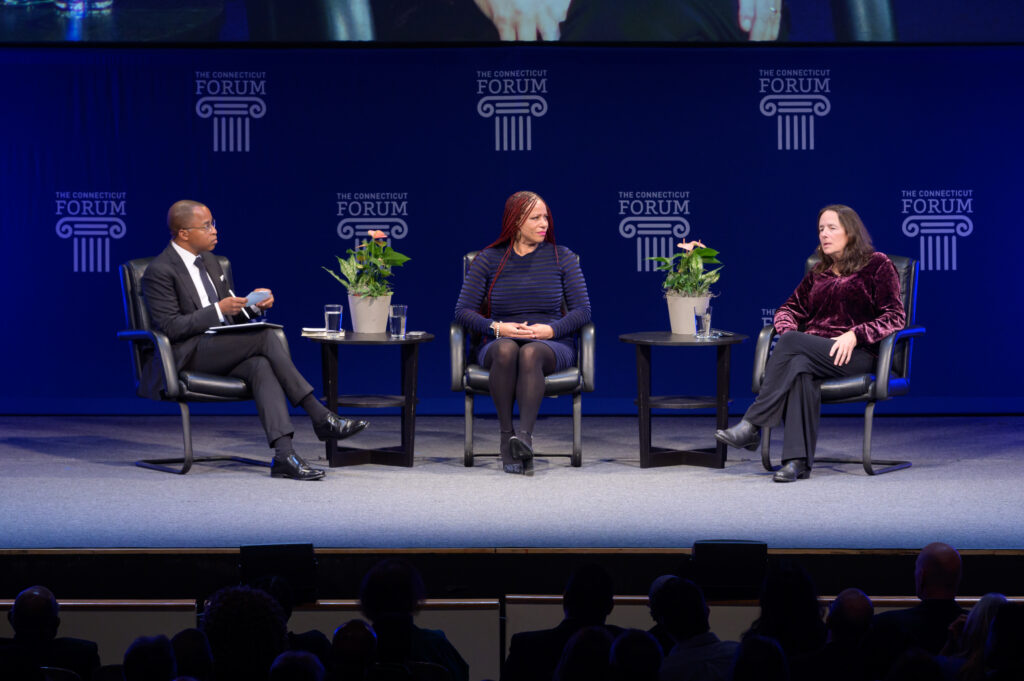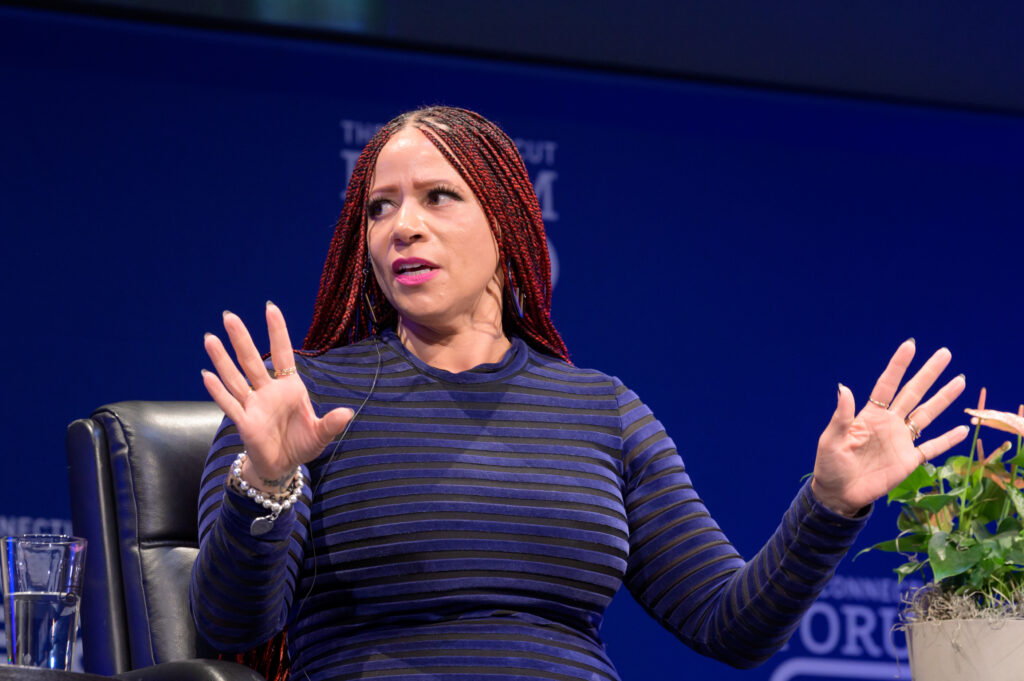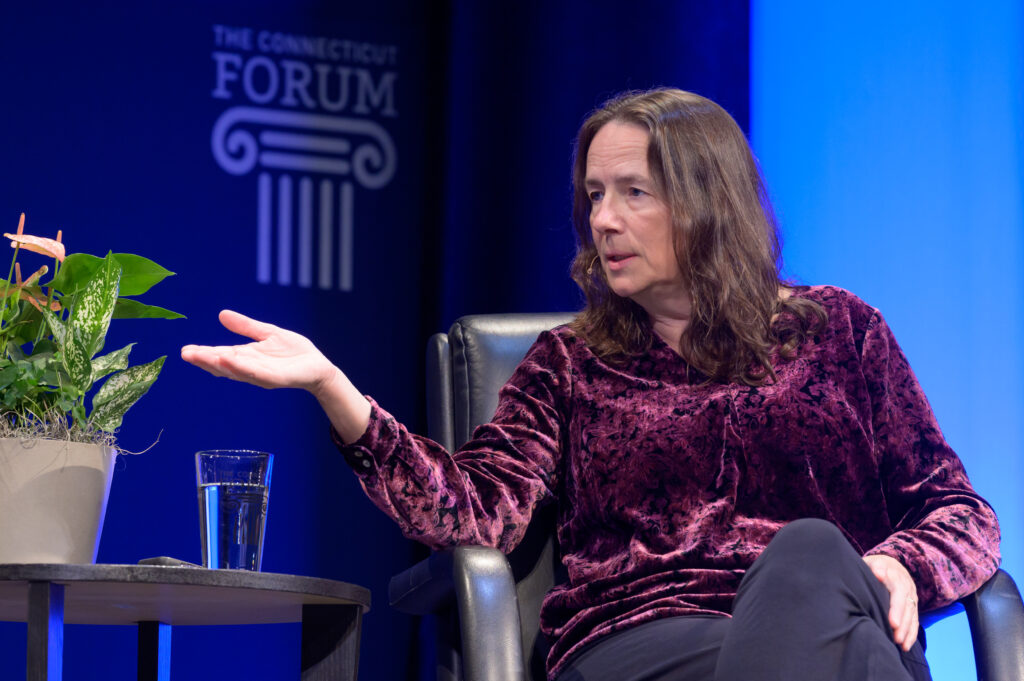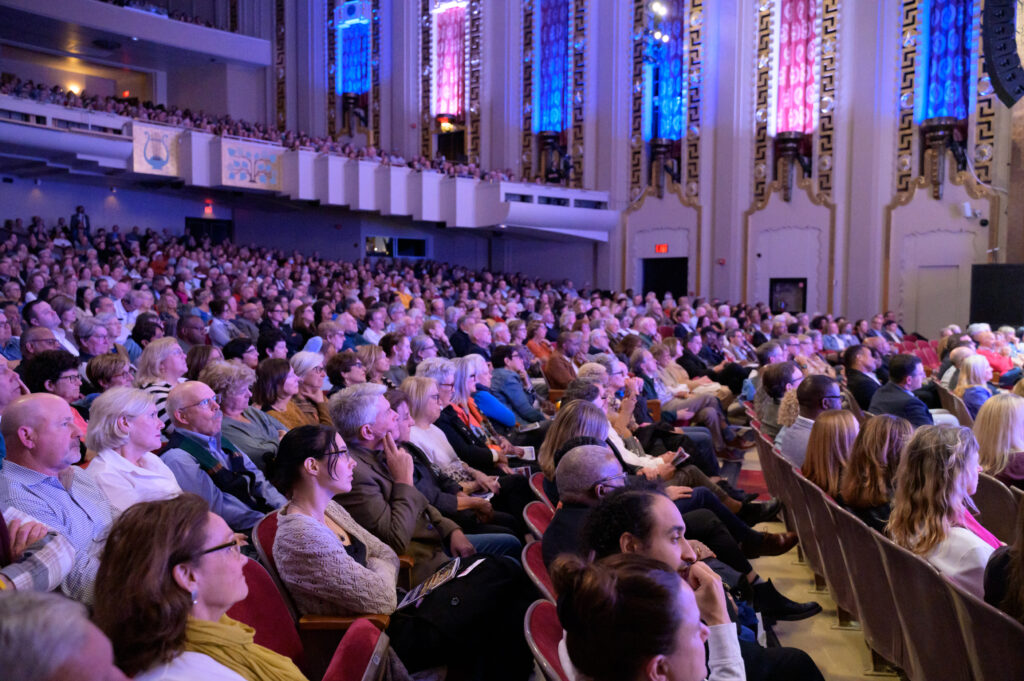Trinity Students Examine ‘Reflections on a Complex America’ at Connecticut Forum
Trinity College students recently heard Pulitzer Prize-winning journalist Nikole Hannah-Jones and historian and best-selling author Heather Cox Richardson engage in a timely conversation called “Reflections on a Complex America.” The dialogue was hosted by the Connecticut Forum, of which Trinity is an education partner.
Jonathan Capehart, Washington Post associate editor and MSNBC anchor, moderated the conversation at the Bushnell Center for the Performing Arts on October 24, less than two weeks before the November 5 election.

Hannah-Jones and Cox Richardson had meaningful exchanges about the current state of American politics and its relationship with American history, and each mentioned their individual current projects.
Created by Hannah-Jones in 2019—the 400th anniversary of the beginning of American slavery—the 1619 Project is an ongoing initiative in The New York Times Magazine that reframes history by placing slavery at the heart of the narrative. The project works to explain the origins of anti-Black racism and inequality and how these ideas are embedded in American systems.
“The 1619 Project reveals a truth that most Americans are not willing to face,” said Hannah-Jones. “History weaves collective stories and illustrates the past; however, it is not fully accurate. This idea inspired me to create the 1619 Project, to depict American history from a different vantage point.”

Hannah-Jones added, “Everything has been constructed. Society does not have to be this way. The past built our current America; we need to build a more truthful future.”
Cox Richardson agreed that the narrative needs to change. “[That] is why I started Letters from an American,” she said. “I feel it is my job to write for future students to see what truly happened through the course of history to fully understand the current moment.”
Letters from an American outlines the history of American policies, the Constitution, and social customs of certain times. Cox Richardson’s newsletter explores the complexity of what it means and has always meant to be an American, using history to better understand the present.

“The world is a hell of a lot smaller than everyone thinks, and if we work to better understand this, we can better our country and better ourselves,” said Cox Richardson.
Trinity students attending the forum shared their views on the impact of the conversation and what they took away from the event.
Psychology major Charlotte Bumbeck ’27 said she learned the importance of America’s history and its effects on the politics and policies we see today. “The conversation made me feel more comfortable in my anxiety over the results of the upcoming election and what it could mean for the American people, especially women, because everyone else was scared, too,” Bumbeck said.
Lyssy Hughes ’27, a sociology major and rhetoric, writing, and media studies minor, connected her field of study at Trinity to the forum. “This forum has made me think more deeply about the sociological imagination,” Hughes said. “Not only do our environments shape us as individuals, but also certain interactions. After listening to these speakers, I realized that constructive criticism is beneficial and is needed to grow.”
 The conversation explored the current state of American politics, with Capehart asking the question, “What gives you hope for the future?”
The conversation explored the current state of American politics, with Capehart asking the question, “What gives you hope for the future?”
Hannah-Jones said, “Hope is an action, and Black people had to believe they could manifest equality, not just sit and wish,” she said. “What gives me hope is that we have fought impossible battles and won. But victories can only occur if we do something.”
Cox Richardson added, “American people give me hope. There are millions who show up, exercising their right to vote. I hope we can build a multicultural America, but the struggle will not be overcome November 5.”
To learn more about upcoming Connecticut Forum events in spring 2025, click here.
